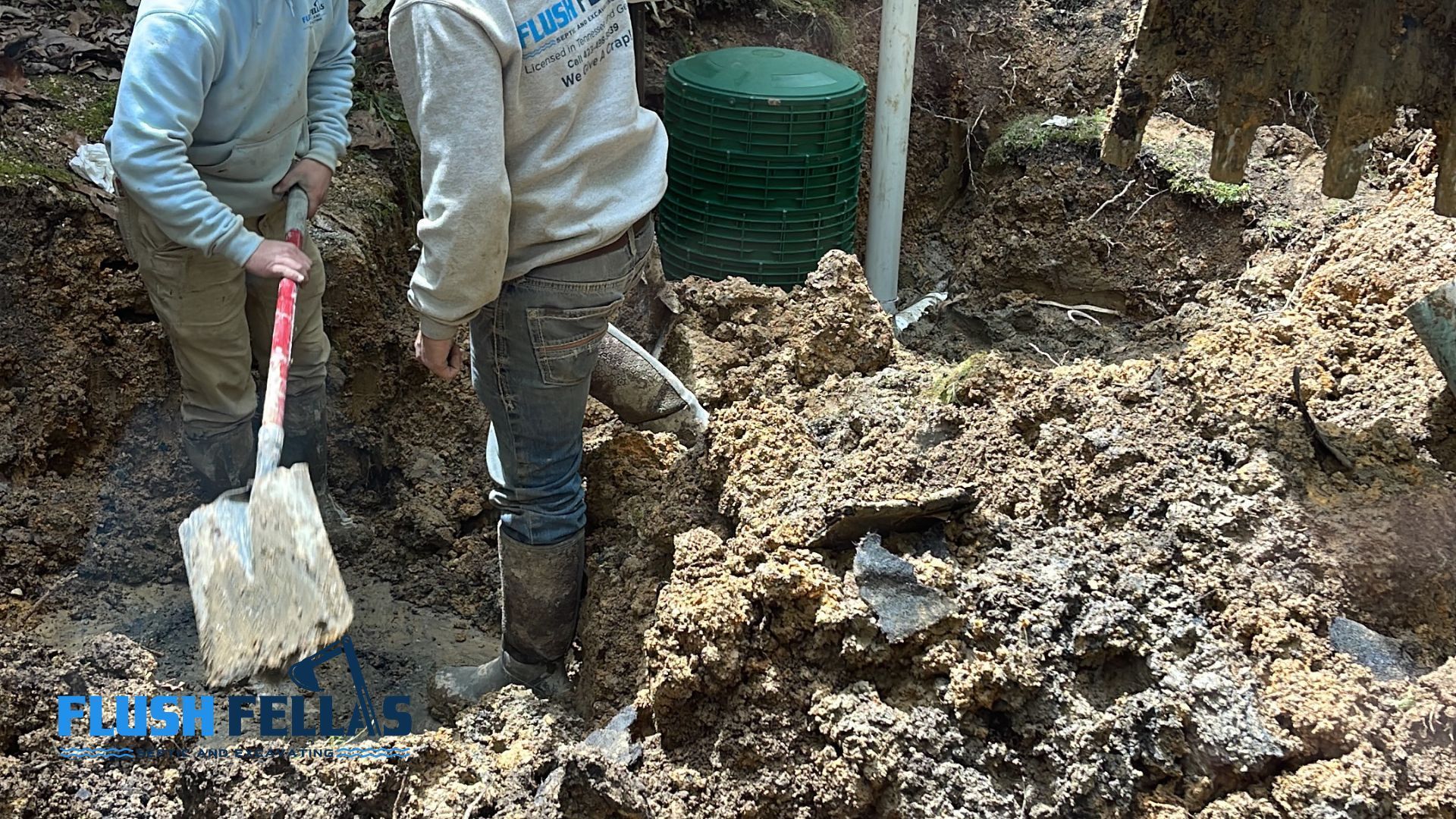A well-constructed and maintained septic system can provide adequate treatment of wastewater from the home for a long time. A septic tank’s purpose is to separate solid waste matter from liquid waste matter and promotes the breakdown of contaminants in wastewater. Septic tanks treat wastewater before it is slowly disposed of in the drainfield.(1) Understanding how your septic system works helps you ensure that it is in good working order.
Maintaining healthy septic systems isn’t all that expensive, but digging up and replacing a completely broken septic system can easily cost thousands of dollars. Understanding the many types of septic systems, how they function, and how they can fail is the first step toward good maintenance. Let’s go underground and see what happens in a properly operating septic system. Following that, we’ll explain why things go wrong and provide you with some ideas for keeping your system in good working order.
Different Types of Septic Systems
Septic systems efficiently dispose of sewage and graywater, making them an essential component of many homes. However, not all septic systems are the same. In truth, there are three main types of septic systems, each with its own characteristics and adaptability for various situations. Understanding these systems is critical for homeowners interested in installing or maintaining their septic system.
Aerobic Treatment Units
Aerobic treatment units come to the rescue when soil conditions are inadequate or insufficient. These systems use an aerobic (oxygen-dependent) treatment process, which is more successful than the anaerobic method used in conventional systems to break down sewage. Pumps and aerators boost bacterial activity, making ATUs suited for properties with high water tables or limited soil absorption capacity.
Pressure Distribution Septic Systems
These systems are appropriate for places with poor soil quality or uneven terrain. They function similarly to traditional systems but contain a pump to spread wastewater uniformly along the drain field. This provides more efficient treatment, making pressure distribution systems appealing for properties with difficult terrain.
Conventional Septic Systems
These are the most common and conventional type, often known as gravity septic systems. They are made up of a septic tank that collects and separates sediments and liquids. After the wastewater is treated in the tank, it flows by gravity into a drain field, where the soil further treats it. Traditional septic systems are appropriate for locations with adequate soil permeability and drainage.
How Septic Systems Work
Bacteria are responsible for the operation of a septic system. They decompose waste, allowing water to safely seep down into the soil. The entire system is intended to keep microorganisms healthy and active. Some reside in the tank, but the vast majority work in the drain field.
- The septic tank receives all waste.
- Watery waste occupies the majority of the tank. Anaerobic bacteria begin decomposing the organic matter in the wastewater.
- Sludge, which is made up of inorganic solids and bacterial digestive byproducts, goes to the bottom.
- A layer of scum rises to the surface. Scum is mostly made up of fats, greases, and oils. Higher-density solids sink to the bottom.
- Most solids are prevented from entering the output pipe by an effluent filter.
- The effluent is directed to the drain field. The drain septic field provides a broad space for bacteria to grow and cleaned water to percolate into the ground.
- Effluent seeps into the surrounding gravel through holes in the drain septic field pipe. The presence of gravel surrounding pipes allows water to enter the soil and oxygen to reach bacteria.
- Aerobic bacteria in gravel and dirt decompose trash completely.
- Water from the surface seeps into the groundwater and aquifer.

Septic Tank Pumping
Septic tank pumping Chattanooga reduces sludge and scum buildup, slowing bacterial action in the tank. Septic tank pumping Chattanooga, TN, may be required once a year, but depending on your tank’s size and the quantity of trash you flow through the system, you could go two or three years before pumping. Inquire with your inspector about how frequently Chattanooga septic tank pumping is needed. Septic system upkeep requires regular inspections and septic tank pumping Chattanooga.
If you’re not afraid of getting your hands dirty, you can check the sludge level yourself with a gadget called The Sludge Judge. When your tank is one-third full of sludge, contact
septic tank pumping companies in Chattanooga area to have it pumped out. The
cost to pumping septic tank in Chattanooga, TN, ranges between $200 to $800.
Septic Tank Inspections
As simple as a septic system may appear, determining its condition requires the assistance of a professional. Consider hiring a contractor who has obtained proper training in the science of septic systems. Some states have developed septic contractor certification systems; check with your Secretary of State’s office to see if yours is among them. Your septic tank will be tested for a few hundred dollars, ranging from $200 to $900.
Your professional will then inform you how often your system should be inspected and how a septic tank works. A thorough inspection will identify whether or not your system is up to code, as well as the condition of the tank and drain field. A skilled inspector will also tell you whether your tank is big enough for your family and how much water you can put in it in a day. You can boost the performance of your system by introducing bacteria.
The professional will tell you if this treatment will benefit your system.
How to Prevent Septic Tank Problems
Practical measures for maintaining a healthy and trouble-free septic system are crucial, from appropriate waste disposal to the influence of home chemicals. Understanding how certain habits and factors might affect the performance of your septic tank is critical to avoiding costly problems in the future.
- Do not flush rubbish that slowly decomposes down drains. Diapers and coffee grounds are frequently a source of contention.
- Garbage disposals can deliver excessive solid trash into the system if utilized frequently.
- Washing machines emit lint from synthetic fibers, and bacteria cannot degrade it.
- Bacteria are killed by household chemicals such as disinfecting cleansers and antibacterial soaps. Most systems can handle light usage of these goods, but the less you use them, the better.
For more information on Flush Fellas Septic & Excavating and our services, feel free to reach us via phone today: (423) 498-9839.

About the author
Charles Chandler
Charles Chandler is the founder of Flush Fellas, a septic and excavating company based in Chattanooga, TN. With a passion for providing top-notch services to his clients, Charles has established himself as a prominent figure in the industry. He has extensive knowledge of septic systems, excavation, and drainage solutions, which he uses to offer customized services that meet the specific needs of his clients. Charles is committed to providing exceptional customer service and building long-term relationships with his clients. He is dedicated to staying up-to-date with the latest industry trends and innovations to ensure that Flush Fellas continues to offer the best services possible.


